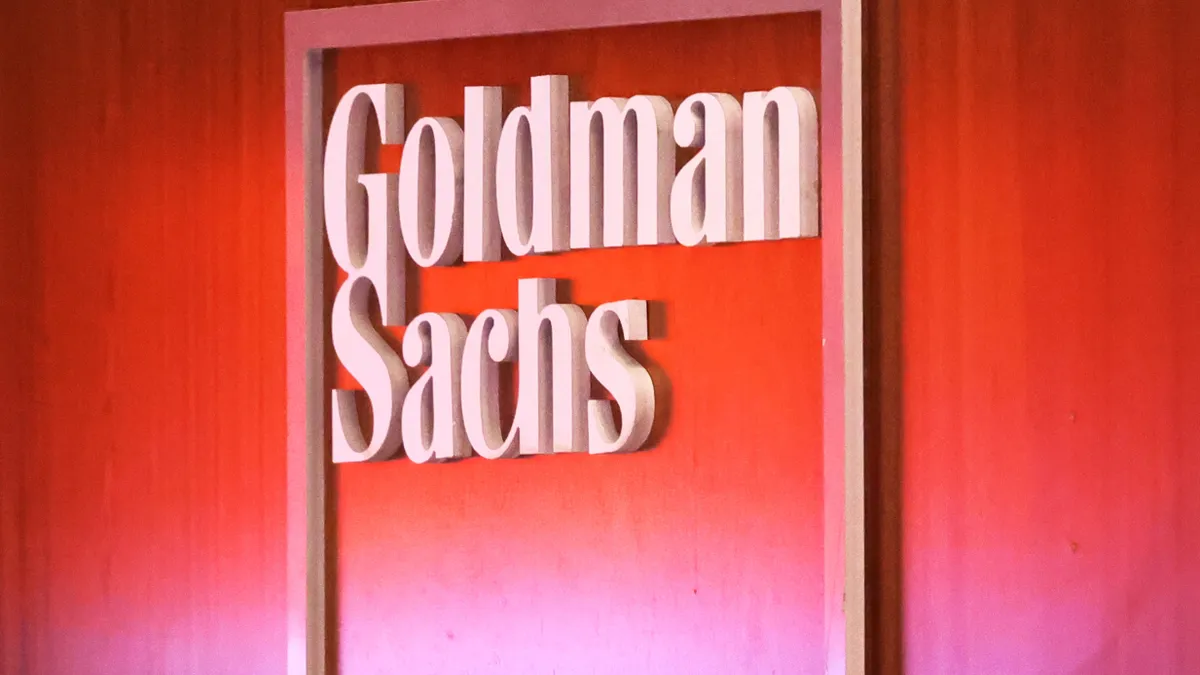Dive Brief:
- The Securities and Exchange Commission (SEC) charged Goldman Sachs Asset Management (GSAM) with failing to follow its own policies and procedures for two funds and a separately-managed account marketed as environmental, social and governance (ESG) investments, according to a Tuesday announcement.
- From April 2017 through February 2020, the SEC order states GSAM initially didn’t have written ESG policies in place early on and later, did not consistently follow them despite pitch books and marketing material that referred to proprietary ESG investment tools, according to the order.
- Without admitting or denying the SEC’s findings, GSAM agreed to a cease-and-desist order, a censure, and to pay a $4 million penalty to settle the charges.
Dive Insight:
The settlement comes about six months after the SEC charged a unit of BNY Mellon with misstating how it applied ESG criteria when making investment decisions for some of its mutual funds. In that case BNY Mellon Investment Adviser agreed to pay a $1.5 million penalty to settle the charges.
The SEC has pledged to crack down on companies involved in finance and other sectors that overstate their commitment to sustainability. The practice of exaggerating ESG efforts is known as greenwashing.
SEC officials in the announcement warned that advisers which are increasingly marketing ESG funds must establish and follow policies and procedures.
“Today’s action reinforces that investment advisers must develop and adhere to their policies and procedures over their investment processes, including ESG research, to ensure investors receive the advisory services they would expect to receive from an ESG investment,” Andrew Dean, co-chief of the SEC’s Enforcement Division’s Asset Management unit, said in a statement.
GSAM in a statement Tuesday said it was pleased to have resolved the issue. “These historical matters did not materially impact the investments’ satisfaction of the ESG criteria contained in those policies and procedures,” GSAM stated, noting the matter related to the Goldman Sachs ESG Emerging Markets Equity Fund, Goldman Sachs International Equity ESG Fund and a US Equity ESG separately-managed account strategy.
During the 2017 to 2020 period, the prospectuses for two GSAM funds described a two-step investment process for applying ESG considerations to select, monitor and sell securities, according to the order. First, teams screened and excluded certain businesses such as casinos, distillers, tobacco producers and arms manufacturers, according to the order. Second, teams undertook a supplemental ESG analysis of companies which included “conducting proprietary ESG research” although the details were not described in the prospectuses.
In mid 2018 the criteria that determined which securities or stocks were classified as ESG was updated but once adopted they weren’t consistently implemented. For example, for one fund investment analysts had only completed questionnaires used to help select stocks for 34 of 79 positions, the order found.
“Furthermore, because the questionnaires had not been completed, the ESG scores generated from them could not have been used for position sizing…nor could they have been used to inform stock selection and portfolio construction, as the pitch book materials indicated,” the SEC order states.
As of April 7, GSAM managed approximately $1.5 trillion in regulatory assets under management, according to the order.












